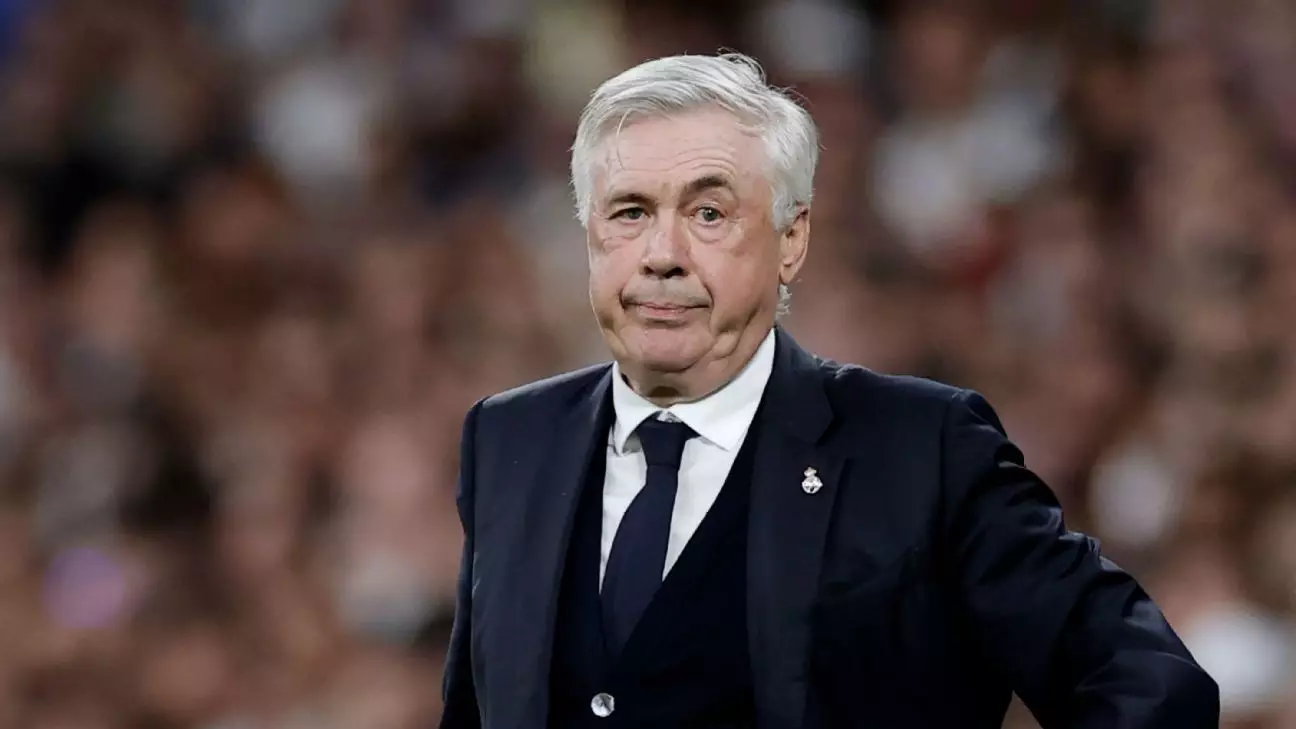The football world is rife with speculation surrounding Carlo Ancelotti’s potential departure from Real Madrid, as tensions escalate between the club and the Brazilian Football Confederation (CBF). While optimism initially characterized discussions about Ancelotti’s transition to the Brazil national team, the underlying dissatisfaction from Madrid regarding the timing and financial aspects of his exit raises a host of concerns. The situation is compounded by the fact that the renowned coach’s current contract extends until June 2026, leaving many to question how his responsibilities at Real will align with Brazil’s upcoming World Cup qualifiers.
Contractual Constraints and pressure on Both Ends
Real Madrid’s insistence that Ancelotti remains focused on LaLiga for the remainder of the season exposes the friction between club loyalty and managerial aspirations. With Madrid’s disappointing European performance and a bitter Copa del Rey defeat, the club appears hesitant to relinquish one of their most decorated coaches. Not only does their wish for Ancelotti to also guide Real in the Club World Cup add complexity to the equation, but it underscores the conflicting interests between a club invested in finishing the season strong and a national team eager for a successful transition.
Furthermore, the reluctance to pay out the remainder of Ancelotti’s contract has thrown a wrench in negotiations. This financial standoff transforms what should be a straightforward decision into a convoluted chess match, where both parties are vying for position while trying to avoid unnecessary pressure on Ancelotti. Such a situation reveals the often hidden complexities of high-stakes football negotiations, where the emotional and operational stakes intertwine.
Brazil’s Coaching Dilemma: A National Priority
With Brazil’s distinct footballing culture at stake, the urgency behind securing a coach becomes pronounced. The national team, after experiencing a humiliating defeat against their Argentine rivals, stands perilously in fourth place in the World Cup qualifying standings. Matches against Ecuador and Paraguay loom just around the corner, intensifying the need for a decisive coaching solution. If Ancelotti’s transition stalls, the CBF might find itself in a bind, scrambling to either bring in a suitable replacement or appoint an interim coach to maintain stability as Real Madrid prepares for their own commitments.
Moreover, timing is critical. As the CBF evaluates alternatives like Jorge Jesus, the clock ticks down to the squad announcement on May 26. Each passing day brings additional scrutiny and pressure to deliver a robust strategy for the national team, while Real Madrid grapples with how best to navigate an increasingly fraught relationship with a coach whose legacy has been firmly tied to their successes.
Legacy and Current Realities: A Strained Relationship
Ancelotti’s record with Real Madrid is remarkable: three Champions League trophies and two LaLiga titles speak volumes, yet the current season has not unfolded as anticipated. A barrage of high-profile defeats has tarnished the sheen of his achievements, leading to questions about the coach’s future. Instead of embracing success, both Ancelotti and Madrid find themselves embroiled in a precarious situation that could jeopardize future successes for both parties.
The juxtaposition between Ancelotti’s illustrious past and the present uncertainty highlights not just the precarious nature of managerial tenures but also the intrinsic volatility of football itself. Decisions that appear straightforward can unravel rapidly, revealing the vulnerability of even the most successful coaches when responsibilities clash with aspirations. As negotiations wade deeper into complexity, the next steps taken will significantly impact the landscape of both Real Madrid and Brazil’s footballing futures.

